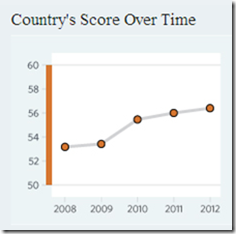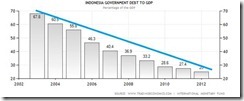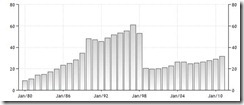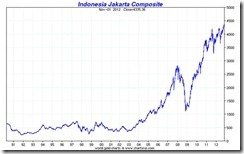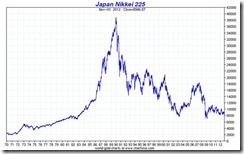2008 ushered in a season for lobbying, bailouts and record losses…
First, amidst the present financial crisis, the lobbying business is now booming as Washington decides the winners and losers…
This from thehill.com, ``At the top of the economic agenda, however, is an economic stimulus package that could reach $850 billion, ranking among the biggest federal expenditures in history. Democratic leaders are drafting the package now in hopes of passing it before Obama takes the oath of office.
``With so much money on the table, lobbyists are working late into the holiday season to pitch their clients’ needs to the bill’s authors…
``Tony Podesta, a high-profile Democratic lobbyist, said it’s too risky for companies to cut their lobbying budgets when Congress is poised to pass landmark legislation. If anything, he said, it’s time to increase spending.
“Lobbyists and discounters may be the only people who grow,” he said"
Two, the lobbying interests has been expanding to cover almost every industry.
Some projects or programs floated or proposed by state and local officials include (Washington Post):
· $4.8 million for a polar bear exhibit in Rhode Island.
· $100 million to redevelop land for a casino in Philadelphia.
· $13 million in improvements in Las Vegas, much of it for a pedestrian bridge at the Tropicana hotel-casino.
· A yet-to-be-determined amount for a proposed $50 million museum in Las Vegas devoted to organized crime.
· $6 million for snow-making and maintenance facilities at Spirit Mountain, Minn.
So former President of Federal Reserve Bank of St. Louis, William Poole is absolutely right when he said, “Everyone knows that a policy of bailouts will increase their number.”
Next, across the pond, the bailout response has likewise been a contagion; the floundering “native” cheese making industry of Italy is getting rescued too! Italy’s government will be buying nearly 200,000 wheels cheese to be distributed to charity.

Courtesy of the Independent.co.uk
According to the Independent, ``Parmigiano Reggiano, Italy's King of Cheese, is in trouble. Robust in flavour and crumbly, it is a classic of Italy's artisan food traditions, made by hand by 430 craft producers around the city of Parma. But with Italian consumption falling as costs soar, almost a third of producers now face bankruptcy. Now Italy's Minister of Agriculture, Luca Zaia, has come to the rescue, promising to buy 100,000 Parmigiano Reggiano cheeses, and also 100,000 of its less costly competitor, Grana Padano.
``This is Italy's big cheese bailout. Essentially, the government will be gobbling up 3 per cent of Parmesan production at an estimated cost of €50m (£44.7m) and distributing it to the needy. Each 35kg wheel of Parmigiano costs between €8 and €8.50 to make, but the wholesale price has declined for the past four years even as the cost of milk and energy has soared.”
Of course, not everyone will be pleased since others belonging to the same industry won’t be as privileged. From the Telegraph, ``Producers of Italy's other celebrated cheese - buffalo mozzarella - are looking on enviously after suffering an 18 per cent drop in sales in the last year. "We've asked for help too," said Vincenzo Oliviero, the head of Italy's mozzarella producers association, which has yet to receive an injection of state aid."
See what we mean by government deciding the winners and losers?
Going back to the US, the government spending binge has also been creating some sets of new problems in terms of project efficacies, transparency and accountability.
This from Yahoo.news, ``Government officials overseeing a $700 billion bailout have acknowledged difficulties tracking the money and assessing the program's effectiveness.
``More broadly, the officials discussed "the difficulty of isolating the effects" of the bailout program "given the variety of policy actions taken by the U.S. government to support financial stability and promote economic growth."
``The officials also noted the "difficulties associated with monitoring the use of specific funds" provided to individual financial institutions, according to the document…
``The government has pledged to provide $250 billion to banks in return for partial ownership. The goal is for banks to use the money to boost lending. However, a recent review by The Associated Press found that after receiving billions in aid from U.S. taxpayers, the nation's largest banks can't say exactly how they're spending the money. Some wouldn't even talk about it.
``The idea behind the capital injection program is for banks to use the money to rebuild reserves and lend more freely to customers. However, banks do have leeway to use the money for other things, such as buying other banks, paying dividends to investors or bonuses to executives. That's touched a nerve with some lawmakers and other critics."
Talk about first few signs of unintended consequences.
The year won’t be complete without the tabulation of government money earmarked for rescue and stimulus programs and of estimates for market and economic losses from the financial crisis.
Some excerpts from the tally sheet of Bloomberg’s Alexis Leondis,
``$30: Approximate amount, in trillions, erased from the value of stocks worldwide.
 Bloomberg: World Market Cap index
Bloomberg: World Market Cap index``$8.6: Amount, in trillions, of taxpayer money the U.S. government has pledged to prop up cash-strapped financial companies as of Nov. 25, according to data compiled by Bloomberg.
``$61,871: Maximum amount the bailout could cost each taxpayer, based on 139 million tax returns filed last year.
``$882: Amount, in billions, of U.S. currency in circulation, according to Bloomberg data.
``$613: Amount, in billions, listed as liabilities when Lehman Brothers Holdings Inc. filed for the biggest bankruptcy in U.S. history.
``$150: Amount, in billions, of taxpayer money pledged to help American International Group Inc.
```11.7: Number, in millions, of households that owe more on their mortgages than their homes are worth, according to Zillow.com
Read the rest here.

From New York Times
Additional losses from hedge funds and stock mutual funds, as noted by Bloomberg, ``It has been a year of record misery: the largest bankruptcy, bank failure and Ponzi scheme in U.S. history; $720 billion in writedowns and losses by financial institutions; $30.1 trillion in market valuation wiped out.
``Hedge funds lost 18 percent of their value for the year through November, the worst year since record-keeping began in 1990, according to Chicago-based Hedge Fund Research Inc. Morgan Stanley estimated that, by year end, at least 620 hedge funds will have closed.
``At bottom, the debacle amounted to a loss of faith, especially for individual investors. They pulled $215.7 billion from stock mutual funds in the first 11 months of the year, according to Investment Company Institute, a Washington-based association. That compares with a $91 billion inflow of funds for the same period of 2007.
``As a result of those withdrawals and market losses, the total net assets in all types of mutual funds fell by $2.67 trillion in the first 11 months of 2008, the institute reported.”
Yet to complete the year’s amazing finish, Forbes presents a list of Billionaires shedding some of their networth with isolated accounts of billionaires going to a net worth of ZERO. (no intentional schadenfreude here but to depict that today's crisis hurt even those at the highest strata)
From Forbes “Billionaire Blow ups”,
``More than 300 of the 1,125 billionaires we tallied on our annual list last March have since lost at least $1 billion; several dozen lost more than $5 billion. The 10 richest from our 2008 rankings dropped some $150 billion of wealth, dragged down by steel tycoon Lakshmi Mittal, estranged brothers Mukesh and Anil Ambani and property baron K.P. Singh, who together dropped $100 billion. America's 25 biggest billionaire losers of 2008 lost a combined $167 billion.”
Click here for
In Pictures “Billionaire Blow Ups”
In Pictures “America's 25 biggest billionaire losers”
